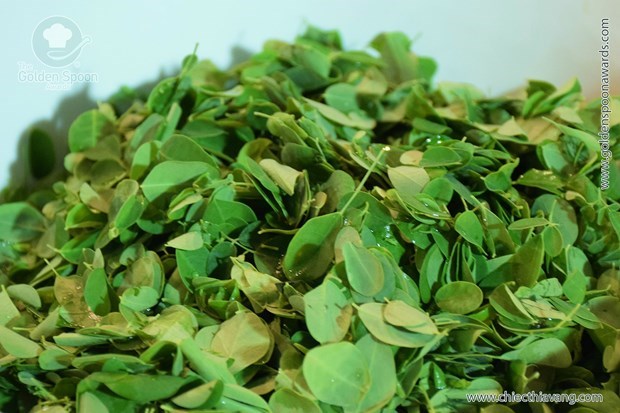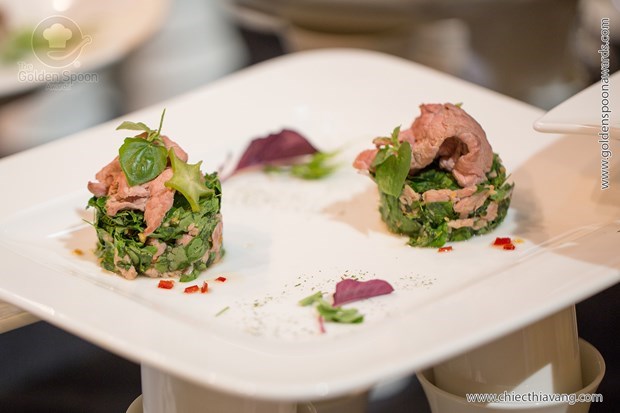Associate
Professor, Ph.D, Doctor Luu Thi Hiep – Dean of Oriental Medicine Department of
Hong Duc hospital, former Traditional Medicine lecturer in University of
Medicine and Pharmacy HCMC said that Moringa has been widely used in over 80
countries in pharmaceutical industry, cosmetics, nutritional beverages, and
functional food. Developing countries is also taking advantage of Moringa as an
incredible natural drug in cure and nutritious food.

Young Moringa leaves are highly nutritious.
We
can tell that Moringa is a valuable herb. So where is its origin, its habitat,
and what is its medical characteristic?
Its
scientific name is Moringa oleifera, originally from India. It easily grows in
tropical zones and its most popular habitat is Asia and Africa. Moringa also
has folk names, which mean “incredible tree” or “life support tree” because of
its extremely condensed nutrients and medical characteristics.
In
Viet Nam, Moringa trees have been wildy growing years ago but lately its
medical effects were discovered so people have misunderstood its origin.
Recently, Moringa trees are farm raised from Da Nang to Kien Giang, and even on
Phu Quoc island.
Modern
pharmaceutical researches have shown that juice from Moringa leaves and roots
have antimicrobial effect, Moringa leaves themselves contain drugs which can
decrease blood pressure, and outer layer of the roots contains high
antimicrobial that can treat mouth sores. The whole Moringa tree is a natural
antimicrobial, even its seeds. Fresh Moringa leaves and flowers contain a huge
amount of vitamins and nutrients, in which vitamin C is 7 times higher than an
orange, calcium is 4 times higher than fresh milk, protein is double fresh
milk, vitamin A is 4 times higher than a carrot, and potassium is triple a
banana. “Some early researches recorded that Moringa root extract is antitumor
in guinea pigs”, provided more details Ms. Luu Thi Hiep.
Is
Moringa used as cure food?
Laos
have Moringa flowers and green fruits as vegetables while Cambodians cook
Moringa leaves and fruits in their Somlo soup. In Viet Nam, young Moringa
leaves can be boiled or stir-fried with beef as a delicious dish. Raw leaves is
to make salad, juice, or to cook with mushroom, pumpkin, sliced baby corns, and
crushed raw peanut as a vegetarian dish. Moringa seeds can be eaten raw or
roasted, grinded to make tea or to season curry broth, or pressed to make salad
oil.

Rare beef and Moringa salad.
Chefs
have brought new remarkable dishes from Moringa to The Golden Spoon contest
2016, such as Rare beef and Moringa leaves salad, Seafood and Moringa soup, and
Moringa pudding. Those nutritious food delightfully surprised gourmet diners
and judges.
In
facts, Moringa has been used as natural medicine for years. Moringa leaves can
treat high fever, measles, and asthma; fruits can increase sexual ability;
barks can treat prostate tumors and anti-fatigue. Besides those, people also
use Moringa in beauty care simply by smashing the leaves with or without
Moringa oil (from the seeds) and applying in 7 minutes, twice a day. Another
interesting useful usage of Moringa is that its seeds contain multi-electrolyte
compounds so people, especially in countryside, can filter water.
Howerver,
scientists recommend not to overdose or to use Moringa root for pregnant women
because what the roots contain can harm the fetus.
By Thanhnien